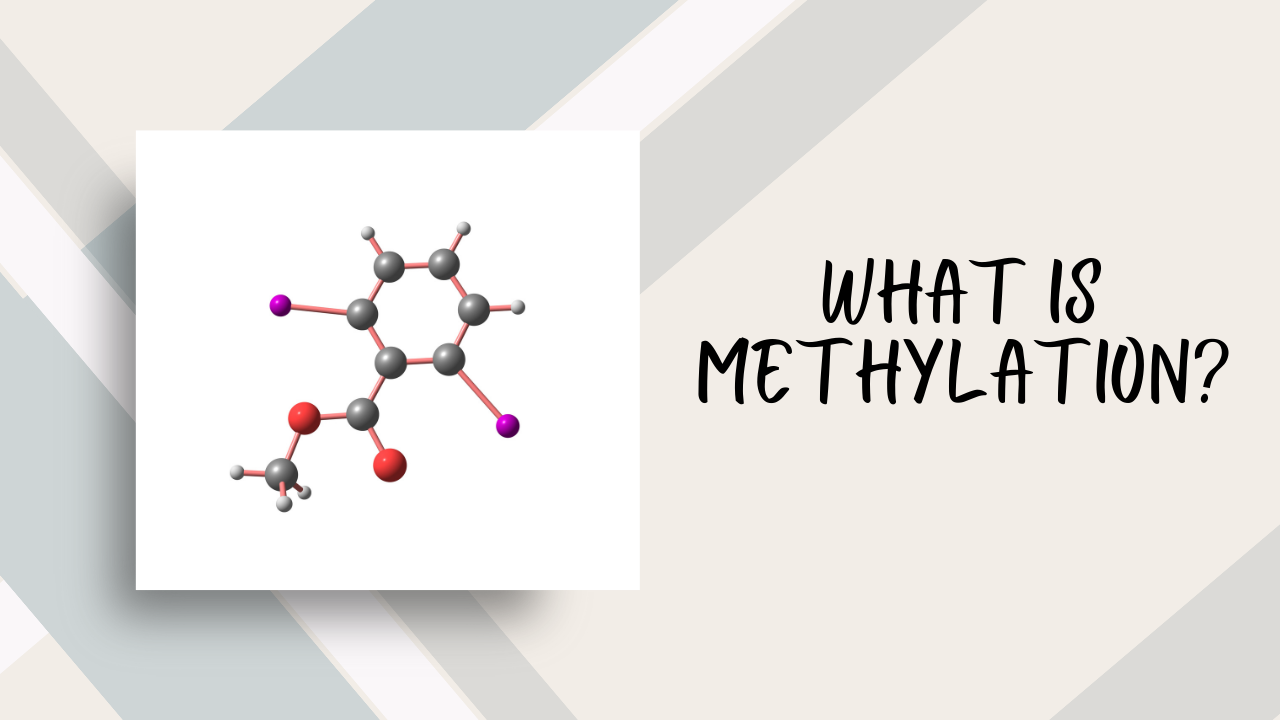What Is Methylation?
Feb 08, 2018
Hi there and welcome back to Medical Monday!! Today I’m going to talk about something called methylation. We’re hearing more and more about methylation in medical circles, but what is methylation and why is it important?
Methylation refers to the process of adding a methyl group to many chemical compounds in the body. The process of methylation influences biochemical pathways in the body that regulate many different functions and processes, among them detoxification, neurotransmitter production and immune function. The DNA needs methyl groups to create healthy RNA, which creates healthy proteins, tissues, and cells.
Some people have genetic defects in their methylation pathways, which can impact the entire body. About 50% of the population appear to have genetic variants of the MTHFR enzyme causing them to have some difficulty resynthesizing methionine from homocysteine. That’s fancy science-speak for “their methylation pathways are screwed up”. Now don’t panic, while genetics might lay down a predisposition, methylation defects can be corrected using the correct supplementation and lifestyle choices. This is called ‘epigenetics’ – ‘epi’ meaning on, or above. This goes above and beyond the basic genetic structure to how we can influence transcription to our body tissues.
There is testing that can be done to see if you have defects in your methylation pathways. Large labs such as Labcorp and Quest will test basic MTHFR genes to see if there are defects there. They report as negative, heterozygous (just one copy of the gene is mutated) or homozygous (both copies of the gene shows mutations). Remember, we have two copies of all our genes, one from our mother and one from our father. A patient with homozygous mutations may have a greater susceptibility to chronic illness, where a heterozygous mutation is a milder version.
Some private labs, as well as 23&Me, do more extensive testing for different SNP’s, looking much more in depth at the genetic make up of an individual. There are also some online services that provide interpretation of such reports. However, be warned – it’s a lot of information and quite confusing to wade through. I would highly recommend working with a pracitioner who is really well versed in methylation to help with interpretation and making an individualized plan.
Methylation is an emerging area in medicine – it’s very important, and at the same time can be complex and confusing. But there are ways to simplify it and take a sensible approach. If there are any genetic defects showing on the lab testing, one can supplement with “methylated” B vitamins such as methyl-folate and methyl-B12. This can provide the body with more of the methyl-groups needed to methylate the DNA and support healthier transcription. The one I use the most in my practice is called Methyl-Guard Plus, by Thorne, which contains methyl-folate, methyl-B12, riboflavin, activated B6 (P5P) and trimethylglycine. For most people some methylation support is good and too much is not good, so I start people on one daily in the morning and work up to a maximum of three daily.
Supporting methylation can switch on detoxification, enable immune cells to function better, and increase the flow of healthy neurotransmitters, reducing depression and anxiety and allowing for better cognitive function. It is important both in chronic illness, and also in preventive health and health optimization, and is especially important in women who are looking to become pregnant.

